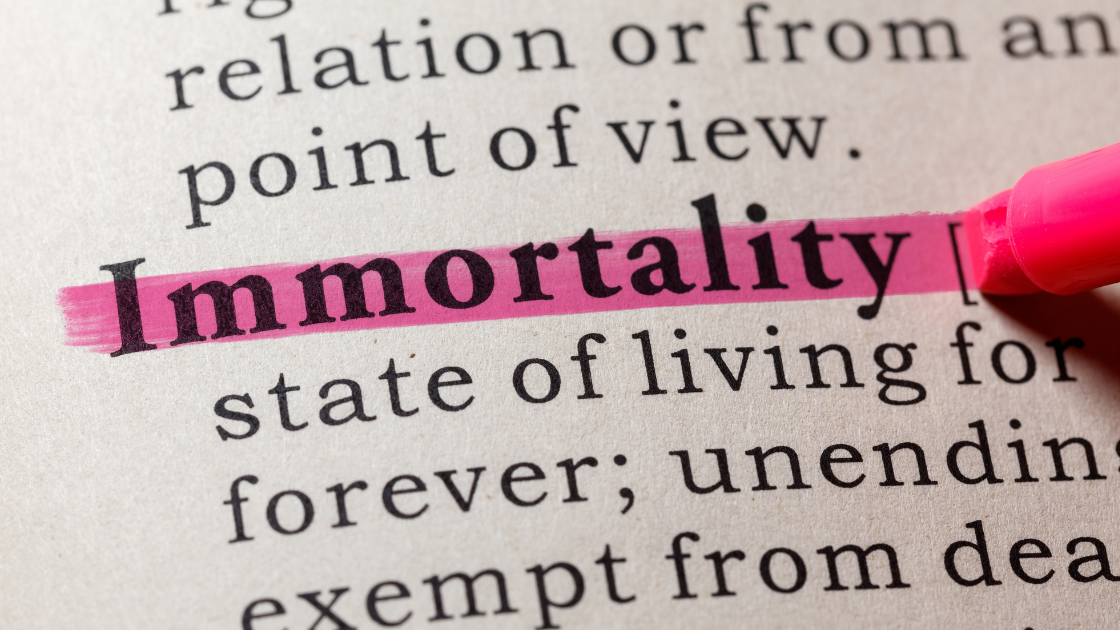Who Wants to Live Forever, Anyway
A dying man needs to die, as a sleepy man needs to sleep, and there comes a time when it is wrong, as well as useless, to resist. – Stewart Alsop (1914-1974) American journalist
The so-called “Immortality Movement” has been around since the 80’s, but relatively recent explosive financial growth has injected, er, new life to the enterprise. Since the 90’s, some high-powered, prominent investors (Elon Musk, Google, et al) have, by application of considerable fiscal attention, generated – just like that – what’s quickly become a sizable industry.
Aubrey de Grey is one of the more visible proponents of the movement to eradicate mortality. Depending on the source, de Grey is a well-known/notorious Cambridge-trained scientist/pseudoscientist, a genius/crackpot variably identified as a groundbreaking pioneer or opportunist. His nonprofit, SENS (Strategies for Engineered Negligible Senescence), a biotech lab in Mountain View, CA – was established with the dedicated purpose of the elimination of all aging, not just age-related disease. Connecting Directors has covered de Grey and the “war on death” previously.
He’s part of the vanguard to make mortality obsolete… and his circle is growing.
”Eventually, we’ll get to an era where it’s very difficult to die…”
The recent upsurge of private investment activity in Silicon Valley has resulted in biotech labs like de Grey’s SENS, and they’re starting to get downright thick on the ground. Apple and Google are represented, as well as other magnates of technology, like Facebook’s Mark Zuckerberg, whose spending in the multiple billions to eliminate disease (all of it). Even Amazon has come to the table. This influx of cash backing has elevated fringe mortality-buster theories from of the scientific hinterlands to levels of Silicon Valley respectability.
The End of The End as We Know It?
There’s an undoubtedly attractive romance to the endeavor, to be sure. Those who have experienced its impact in any form probably prefer no death to death. But however wildly popular and inventive the concept of everlasting life may be to the imagination, it’s one that is fairly impossible for many scientists to consider seriously.
The race for the cure to end all disease and eliminate, or at the very least, lap the natural process of aging takes as its basis authentic, groundbreaking real science, and from it garners impressions of respectability. The greater consensus from the scientific community, however, unsurprisingly, is one of skepticism and disdain for what many see as the misapplication of real research for pie-in-the-sky ends. Overall – the endeavor grows, and with it, opponents and naysayers , some more vitriolic than others: They share, at base, the ultimate sentiment that “[…] given the recent successes and highly emotional nature of life extension research, Aubrey de Grey is not the first, nor will he be the last, to promote a hopelessly insufficient but ably camouflaged pipe-dream to the hopeful many”. In other words, more hopeful thinking, and less objective inquiry.
But In the Interest of Fairness
They’ve been there all along, the naysayers; through humanity’s greatest scientific, technological, and engineering achievements, scornful until faced with the achievement’s realization, its incontrovertible reality. It’s as natural a part of the process as, well, life and death. They’ve been wrong before. They could be wrong now.
Should those with the goals of putting the grim reaper out of work succeed in their various approaches to eliminating the mortal factor from the biological equation, it remains highly probable that it will still, always, remain possible to die. Acute trauma is unlikely to be eliminated from human experience, after all. Undoing that unhappy potential for fatality is unlikely to be an achievement of medicine without the mastery of time travel… but that’s an article for another day.
Suffice it to say, the death industry is likely to remain viable.
Thanks to Connecting Directors contributing writer Jennifer Trudeau for this story!




